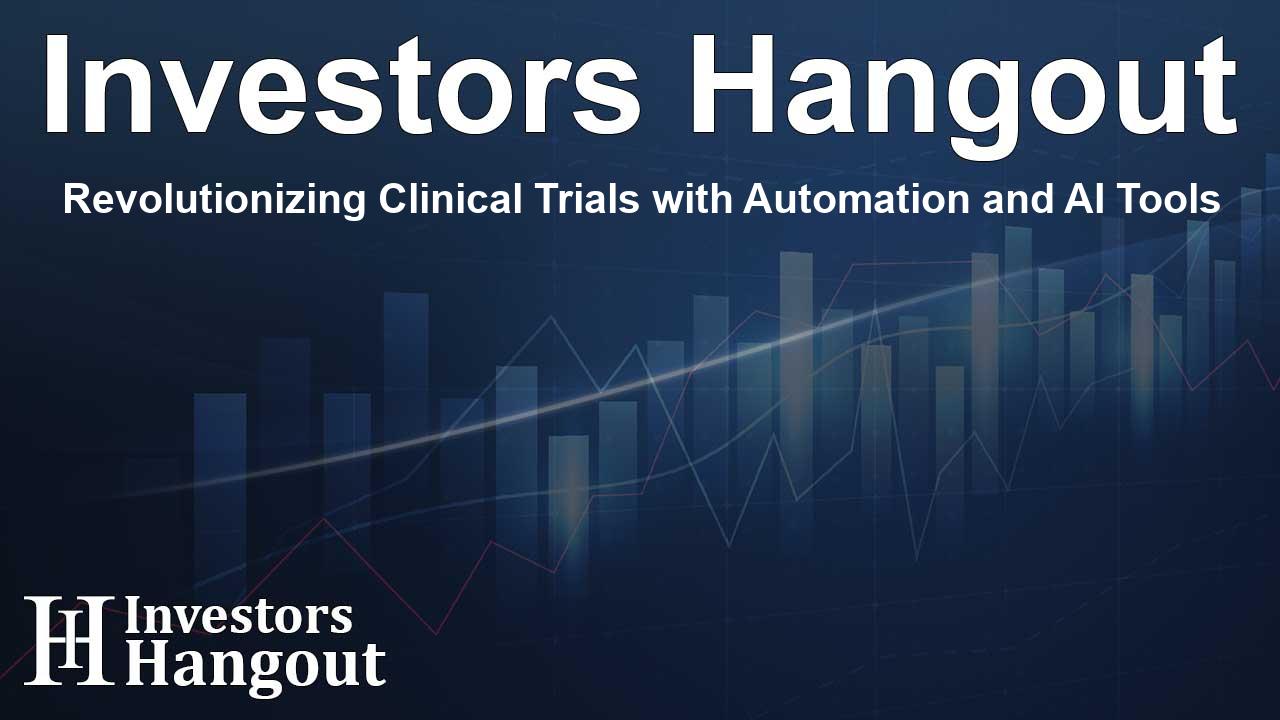Revolutionizing Clinical Trials with Automation and AI Tools

Transforming Clinical Trials with Innovative Automation
Research Grid has unveiled a groundbreaking Site Feasibility solution designed to drastically streamline the process of launching clinical trials. With this new initiative, the timeline for site feasibility evaluations, which previously spanned six months, is now reduced to mere minutes. This significant advancement not only accelerates trial startups but also expands access to diverse patient populations globally.
The Need for Change in Clinical Research
The clinical research landscape faces numerous challenges, particularly in the area of site feasibility. Historically, trial sponsors and Contract Research Organizations (CROs) encountered several obstacles due to manual processes, outdated data, and inconsistent outreach efforts. Research Grid recognized that feasibility assessments were often the bottlenecks in clinical trials, leading to extended timelines and costly delays.
Understanding the Bottlenecks
Several statistics illustrate the extent of the challenges faced by clinical trials. A staggering 80% of trials do not meet enrollment deadlines, with over 30% of sites failing to enroll enough participants. The consequences of these issues extend beyond mere inconvenience; 85% of studies incur additional costs due to recruitment delays, and site personnel can spend thousands of hours each year navigating feasibility processes.
Introducing Research Grid’s Solution
The newly launched Site Feasibility solution by Research Grid utilizes real-world data combined with an expansive network of over 97,000 communities, covering diverse regions and medical indications. This technological advancement propels sponsors and CROs to easily identify the most suitable trial sites, assess their viability quickly, and initiate the studies without unnecessary delays.
Key Features of the Site Feasibility Tool
Research Grid’s Site Feasibility tool is engineered to deliver instant insights linked to specific protocols. Here are some of the standout features:
- Global Patient Reach: Gain access to a carefully curated network of over 96,000 verified communities across 157 countries, aligned with diverse protocol requirements.
- Accelerated Planning: Replace traditional outreach efforts of several weeks with instant feasibility reports boosted by AI technology.
- Equity-Focused Design: This tool prioritizes inclusivity by facilitating the identification of underrepresented regions, ensuring diverse and equitable enrollment in clinical trials.
- Enhanced Recruitment Strategies: Focus on sites demonstrating real patient access rather than historical performance metrics alone.
- Streamlined Workflow: Manage and track feasibility processes effectively across global teams within a single platform.
Available now, the tool can be used in a self-service capacity or through a fully managed service, providing a flexible approach to feasibility assessments for both individual trials and broader portfolios.
A Commitment to Innovation
This launch aligns with Research Grid's mission to replace outdated, manual processes with intelligent automation. The impact of this technology extends beyond mere efficiency; it supports more inclusive and equitable access to clinical trials, ensuring that critical medical advancements can reach patients in need more swiftly.
About Research Grid
Founded in 2020 by Dr. Amber Hill, Research Grid serves as the backbone of modern clinical trials. By addressing historic inefficiencies caused by legacy systems, the company enables faster and more successful trials through smart software solutions. With a total of $8 million raised in venture funding, Research Grid is headquartered in London, dedicated to providing innovative tools for patient and community engagement as well as comprehensive clinical trial management.
Frequently Asked Questions
What is Research Grid's new Site Feasibility solution?
It's a tool designed to significantly reduce the time taken for site feasibility assessments from six months to mere minutes.
How does the tool enhance recruitment for clinical trials?
It focuses on sites that demonstrate real patient access and uses real-world data to optimize the recruitment process.
Why is feasibility an important aspect of clinical trials?
Feasibility affects trial timelines and costs; bottlenecks can lead to missed deadlines and increased expenses.
What industries can benefit from Research Grid's solutions?
Clinical research, particularly in pharmaceutical and biotechnology sectors, can significantly benefit from the automation and efficiency provided by Research Grid.
What is the vision of Research Grid?
The company's mission is to enhance clinical trials' success rates by leveraging smart software tools that automate tedious back-office tasks.
About The Author
Contact Evelyn Baker privately here. Or send an email with ATTN: Evelyn Baker as the subject to contact@investorshangout.com.
About Investors Hangout
Investors Hangout is a leading online stock forum for financial discussion and learning, offering a wide range of free tools and resources. It draws in traders of all levels, who exchange market knowledge, investigate trading tactics, and keep an eye on industry developments in real time. Featuring financial articles, stock message boards, quotes, charts, company profiles, and live news updates. Through cooperative learning and a wealth of informational resources, it helps users from novices creating their first portfolios to experts honing their techniques. Join Investors Hangout today: https://investorshangout.com/
The content of this article is based on factual, publicly available information and does not represent legal, financial, or investment advice. Investors Hangout does not offer financial advice, and the author is not a licensed financial advisor. Consult a qualified advisor before making any financial or investment decisions based on this article. This article should not be considered advice to purchase, sell, or hold any securities or other investments. If any of the material provided here is inaccurate, please contact us for corrections.
